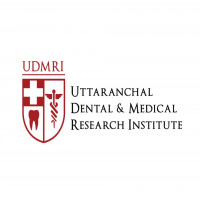Top 5 Signs You May Need Dental Surgery

When it comes to dental care, prevention is always better than cure. However, there are times when preventive or routine treatments simply aren't enough to address deeper, more complex oral health problems. That's where dental surgery comes into play.
Dental surgery includes a variety of procedures aimed at treating conditions that cannot be managed through standard dentistry alone. From tooth extractions and implant placements to corrective jaw surgeries and gum grafts, these procedures are designed to restore both the function and aesthetics of your mouth.
But how do you know when dental surgery is necessary? In this article, we explore the top five signs that may indicate it’s time to consider surgical dental intervention.
1. Persistent or Intense Tooth Pain
Tooth pain is one of the most common dental complaints. While a minor cavity or sensitivity can cause discomfort, ongoing or severe pain is often a red flag for deeper issues like:
- Tooth abscesses
- Cracked or fractured teeth
- Deep decay reaching the nerve
- Failed root canals
When regular dental treatments such as fillings or antibiotics aren’t enough to solve the problem, surgical solutions like tooth extraction or apicoectomy (removal of the tooth root tip) may be necessary.
If you’re waking up in pain or can’t eat or sleep properly due to toothache, it’s time to consult a specialist. Delaying treatment can worsen the condition and affect surrounding teeth and gums.
2. Impacted or Painful Wisdom Teeth
Wisdom teeth, the third set of molars, usually erupt between the ages of 17 and 25. However, many people experience impacted wisdom teeth—when there's not enough room for them to emerge or they grow at odd angles.
- Symptoms may include:
- Swollen or bleeding gums
- Jaw pain or stiffness
- Difficulty opening the mouth
- Bad breath or unpleasant taste
Impacted wisdom teeth can cause crowding, infection, and even cyst formation. In most cases, the best solution is surgical extraction performed by a dental surgeon under local or general anesthesia.
Early intervention is crucial to avoid long-term complications, including damage to adjacent teeth and nerve involvement.
3. Chronic Jaw Pain or Clicking Sound
Your jaw is a complex system of bones, muscles, and joints, and any misalignment or stress can lead to TMJ disorders (temporomandibular joint disorders). Symptoms include:
- Persistent jaw pain
- Clicking or popping sounds
- Lockjaw (inability to fully open or close the mouth)
- Headaches and neck stiffness
While some mild TMJ symptoms can be managed with physical therapy, bite guards, or medication, more severe cases may require arthroscopic surgery or joint realignment procedures.
Ignoring these signs can lead to difficulty in chewing, chronic discomfort, and muscle strain. A consultation with a dental surgeon can help determine whether surgical treatment is necessary.
4. Advanced Gum Disease (Periodontitis)
Gum disease starts quietly—perhaps a little bleeding when you brush or mild inflammation. But when it advances to periodontitis, it becomes a much more serious issue. Key indicators include:
- Receding gums
- Deep pockets between teeth and gums
- Loose or shifting teeth
- Persistent bad breath
At this stage, non-surgical cleaning methods like scaling and root planing may not suffice. Surgical options such as flap surgery, bone grafting, or tissue regeneration may be required to save your teeth and restore gum health.
Untreated gum disease is a leading cause of adult tooth loss and can even impact overall health, contributing to conditions like diabetes and heart disease.
5. Missing Teeth and Jawbone Deterioration
Tooth loss isn’t just a cosmetic issue—it impacts chewing, speech, and bone health. If you have missing teeth, especially for a long time, the underlying jawbone may begin to deteriorate.
In such cases, dental implants offer a permanent, natural-looking solution. However, for implants to succeed, there must be adequate bone to anchor them. If there’s significant bone loss, you might need:
- Bone grafting to rebuild the jawbone
- Sinus lift surgery for upper jaw implants
- Ridge augmentation to reshape the gum line
These procedures fall under oral and maxillofacial surgery and are essential to restore oral function and appearance.
Conclusion: Don’t Ignore the Signs – Seek Expert Help
Ignoring early symptoms often results in more complicated and costly treatments later on. If you're experiencing any of the above issues, don’t wait. Timely diagnosis and treatment can prevent further damage and preserve your oral health.
For residents in and around Uttarakhand, expert help is close by. The Uttaranchal Dental and Medical Research Institute (UDMRI) is renowned for offering the Best Dental Surgery in Uttarakhand, providing comprehensive care using modern equipment and a highly skilled team of surgeons.
Whether it’s wisdom tooth extraction, dental implants, jaw surgery, or gum treatments, UDMRI ensures you receive expert care in a safe, comfortable environment. Their holistic approach not only treats the symptoms but also targets the root cause of dental issues—ensuring long-lasting relief and improved quality of life.
If your smile—or your health—is on the line, trust the experts at UDMRI to restore both. Don’t let dental problems escalate. Take action today, because your oral health matters more than you think.
Note: IndiBlogHub features both user-submitted and editorial content. We do not verify third-party contributions. Read our Disclaimer and Privacy Policyfor details.






